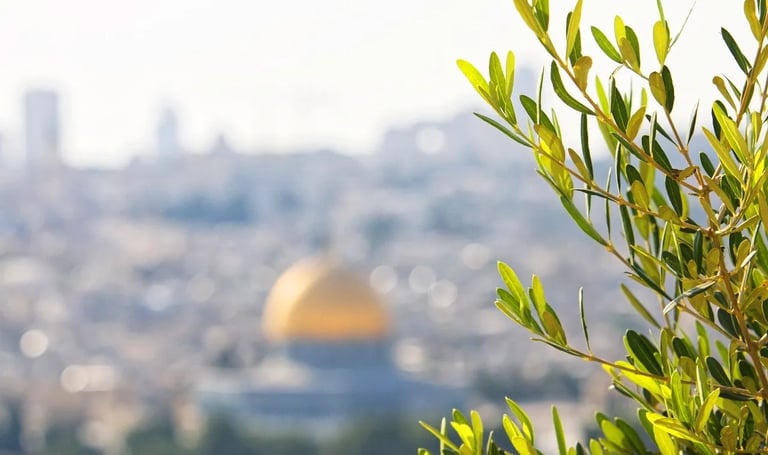Why You Should Learn Both Spoken Palestinian Arabic and Standard Arabic (Fusha)
Where to start and what is the difference
BLOG
Mohammad Awad
7/10/20252 min read


If you're thinking about learning Arabic, you've probably already asked yourself:
Should I start with Spoken Arabic or Modern Standard Arabic (MSA or Fusha)?
Here’s my clear and heartfelt answer as a Palestinian native and Arabic teacher:
Start with Spoken Arabic if you want to use Arabic in real conversations, whether formal or informal then you learn Modern standard Arabic MSA
But if your goals are strictly academic — like studying classical texts, religious studies, or formal writing — then begin with Standard Arabic.
Now let me explain why learning both is not only important, but essential.
Spoken Palestinian Arabic: A Language of People, Emotion, and Daily Life
Spoken Palestinian Arabic is a vibrant dialect, rich in emotion, humor, subtlety, and cultural identity.
It reflects how people think, feel, live, love, fight, and forgive. It’s filled with expressive phrases, unique proverbs, and playful wordplay that shows you how Palestinians see the world.
It’s also a widely understood dialect, especially across the Levant (Jordan, Syria, Lebanon). It sounds natural, melodic, and emotionally powerful and reflect our identity as Palestinians.
When I hear someone speak to me in Palestinian Arabic here in Argentina, my day lights up.
I instantly feel connected — I smile big and a door of friendship unlocks. That’s what spoken Arabic does — it bonds people, instantly and deeply.
Standard Arabic (Fusha): The Soul of the Language
Standard Arabic, or Fusha, carries a different kind of depth — it’s the language of literature, heritage, and faith.
It is the lingua franca of all arab nations and civilization, used in science, poetry, law, philosophy, and religion.
it is the language of all written material accross the Arab World.
It's not “dead,” as some people claim — it's timeless.
Even today, the average Arab can read texts written over a thousand years ago and still understand them.
Thanks to the Quran, the Arabic language has preserved its roots, adapted across centuries, and yet maintained its internal structure beautifully intact.
But Aren’t They Different Languages?
No! That’s the biggest misunderstanding.
Spoken Arabic and Standard Arabic are two sides of the same coin.
Yes, there are differences in style, pronunciation, and grammar — but the vocabulary is shared. The logic is shared.
Think of it like this:
Spoken Arabic is your street. Standard Arabic is your library. You need both to live well in the Arab world.
No Arabic-speaking person lives with only one form. We speak the dialect and we read and write in Standard Arabic.
We think in both.
The Ideal Learning Path
If you're learning Arabic for real-life communication — start with Spoken Palestinian Arabic. It gives you immediate access to conversations, friends, stories, culture, and expression.
Once you’re comfortable speaking, it’s time to elevate your Arabic with Standard Arabic.
Because by then, it won’t feel foreign or difficult — it’ll feel like a natural next level.
You’ll already know the words — just with different vowels and a new rhythm.
You’ll already have the feel of Arabic in your mouth and mind.
And when you read your first real paragraph in Fusha… you’ll fall in love.
It’s beautiful, refined, and full of treasures.
Final Advice: Breathe in Both Worlds
So if you're serious about Arabic — don’t fall into the trap of choosing one “side.”
Live in both. Speak Palestinian Arabic. Read and write Standard Arabic.
That’s how Arabic lives in the hearts of millions.
And remember:
Start with Spoken Palestinian Arabic for connection, culture, and conversation.
Grow into Standard Arabic for elegance, power, and legacy.
You don’t need to choose.
You need to merge.
Spoken Palestinian like olive tree, organic express the people in their daily life, their culture
Standard Arabic express their civilization and religion
Connect
alawad.mohammadmh@gmail.com
+543875857912
© 2025. All rights reserved.
